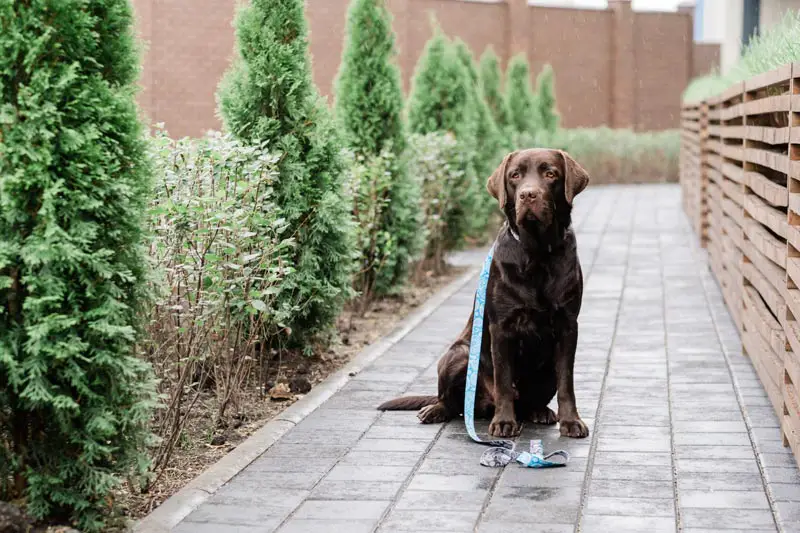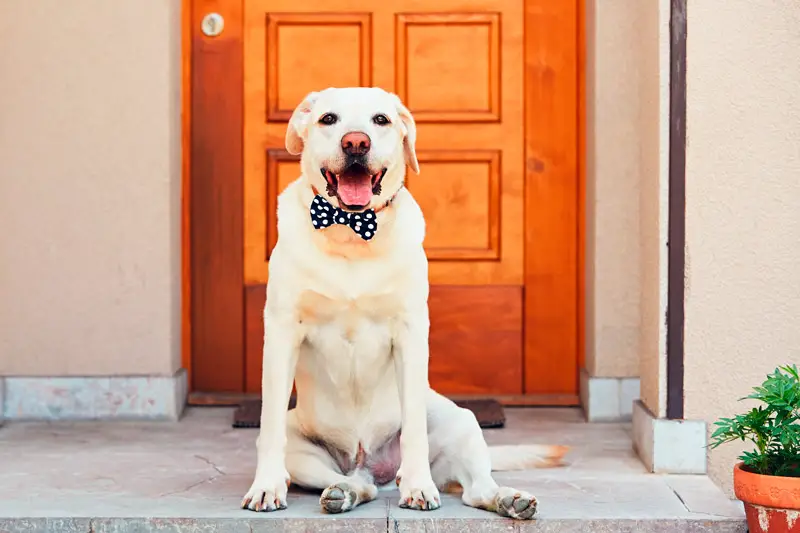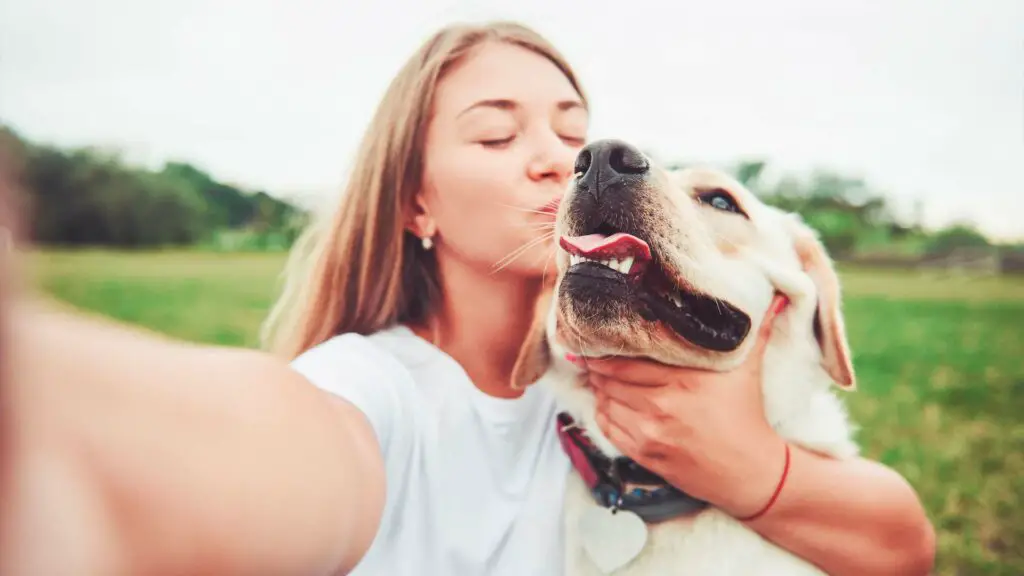Will a Lab Protect People?

The biggest factor in considering if your lab will protect you is defining what protection actually means. Protective behaviors are linked to innate social tendencies in every breed. Every dog breed has been created for specific tasks, from guard dogs to guide dogs to companion dogs.
Labrador Retrievers are, by nature, sweet and kind. They like other dogs and get along with more aggressive dog breeds because of this. They are unlikely to show aggression toward other dogs or people. However, this does not mean that they will not protect their family.
Even Lab puppies will still know if someone means to harm their owner or family. They love their pack, and they will stand up for anyone they feel is being threatened by barking and posturing. The main difference between this type of dog behavior and true aggressive actions is that it is mostly for show.
Labradors are not like other breeds of dogs, such as Doberman Pinschers, who will take action against someone they feel is an intruder. A Retriever will alert the family about someone or something that should not be where it is, but a Lab will not chase or hurt this person or thing.
Labs are still used for law enforcement because of their alert nature, and they are suited for dog training pursuits as well. Labs are inclined to trust a stranger, but they can be educated to take on other traits if necessary. Their affable personality is excellent for training.
What Kinds of Protection Will a Labrador Retriever Provide for a Family?
Labs are excellent family dogs because they are service-minded and love to have jobs and receive training. They may not attack an intruder, but they are excellent at providing an early alarm system for a house threat. A watchdog is fourth on the list of effective deterrents for house break-ins.
A dog uses warning barks to notify their pack of potential threats, and a Labrador will provide this service while out in the yard or when someone comes to the door. They see humans as their pack leader and alert them to threats.
Labs will also ensure that children do not fall into the swimming pool or that another dog will not harm them. Labradors are, by nature, very caring, especially of their pack, and they will not allow harm to come to anyone around them. This is a behavior of good guard dogs.
Studies show that guard dogs are often less effective at providing safety than an alarm system and a pet that makes noise when someone comes to the door or enters the yard. If your standard for home security is prevention, then a Lab can provide this service for you. Dogs attacking people entering a yard or a home are not the only means to keep a property safe.
What Items Will my Lab Protect?
Labradors are likely to protect certain items and routines. They value their pack leader and will look to you for that support. They will become focused on specific things that they feel belong to them. This can be a toy or another dog. A Lab might also protect its food or its bed.
Protective behavior is still not guard dog behavior, but it can be useful to know which things a Lab might care about enough to defend them.
- Family
- Food or water
- Kennel
- A toy
- Their bed
- Other animals
- An area on a property
- A Fenceline
- A trusted friend or neighbor
- A trailer or outbuilding
- A pond or body of water
These are the things that matter to a Lab, and they will alert their family to threats related to them. While this is not ideal guard dog behavior, it is an excellent attitude and trait for a family dog.
Labs might be well known for their sweetness, but they are still medium-to-large dogs and can provide a deterrent for intruders and people who want to harm the property or people in a family. Their acute sense of smell is a trait that can allow them to make their owners aware of danger much sooner than another dog might be, making them a good watchdog.









